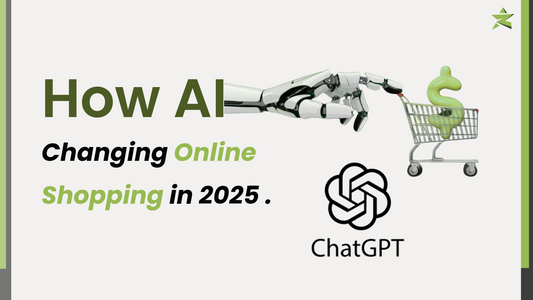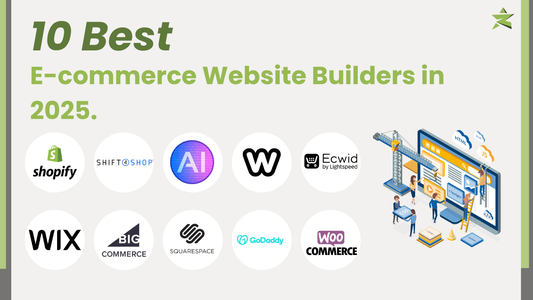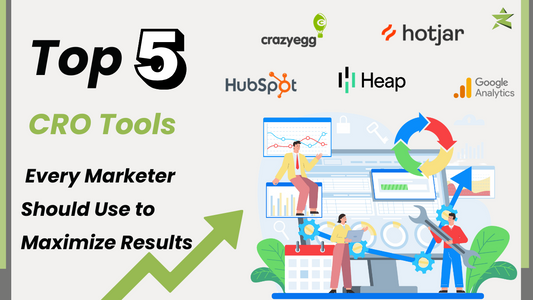The expansion of the World Wide Web since its public launch in 1993 has established the basis for a successful e-commerce sector. Today, with over 2 billion digital shoppers globally, the internet shopping business has grown into a multibillion-dollar it. As ease, safety, and user experience improve, knowing effective e-commerce marketing methods becomes more essential for shops looking to stay relevant in this competitive market.
What is e-commerce marketing?
E-commerce marketing includes the approaches and techniques used to increase traffic to an online business, turn users into customers, and build loyalty. When done correctly, e-commerce marketing may produce impressive ROI and help firms reach their objectives.
Key E-commerce Marketing Channels
Content Marketing
Content marketing is an essential part of inbound marketing that generates leads, improves brand awareness, and attracts traffic to your e-commerce website. Engaging content—whether articles, movies, or infographics—satisfies client needs and builds trust. Businesses can use customer data to tailor content to their target market, resulting in more personalized online experiences.
Social Media Marketing
With 43% of shoppers researching products on social media, leveraging platforms like Facebook and Instagram is crucial for modern e-commerce businesses. Social media not only helps with product marketng, but it also increases consumer feedback and in-app sales. Retailers who use social media report an average sales increase of 32%, making it a successful tool for engagement.
Email Marketing
Email marketing work as a sales generator. Businesses may improve their consumer relationships by using personalized promotion, empty cart reminders, and targeted promotions. Avoiding mass emails and focusing on segmented marketing can result in significant increases in client retention and profit.
Mobile Marketing
Since 2018, mobile traffic has dominated web usage, with more shoppers making purchases on smartphones than on PCs. Optimizing your e-commerce site for mobile users and integrating SMS and email marketing into mobile strategies is crucial in today’s mobile-first world.
Omnichannel Marketing
An omnichannel marketing approach provides a seamless customer experience across all channels, both digital and traditional.Campaigns that use many channels usually end in a 287% higher purchase rate than single-channel efforts. Businesses that use an omnichannel strategy can increase consumer engagement and sales.
Solve E-Commerce Marketing Challenges
Despite the benefits, e-commerce marketers face a number of challenges:
Siloed Data
E-commerce marketers can be overwhelmed by disparate data from many sources. To address this, implementing a single data solution will be essential for analyzing customer behavior and improving marketing efforts.
Low conversion rates.
The average e-commerce conversion rate is 2.86%, showcasing the importance of conversion-boosting techniques. Personalization, multichannel marketing, and incentives can all significantly boost conversion rates.
One-time buyers.
Acquiring new clients can cost five times as much as retaining existing ones. we need to Focus on maintaining clients through loyalty programs and targeted marketing can convert one-time customers into repeat customers, which leads to increased profitability and more things.
Key Strategies for E-Commerce Marketing Success
1. Use e-commerce data.
Businesses can effectively engage with their customers through using data-driven marketing techniques. Marketers may improve engagement and conversions by targeting content to specific groups.
2. Personalize the customer experience.
Personalization is essential for client retention. AI-driven recommendations and personalized offers ensure that clients receive timely and relevant content, improving the chances of a purchase.
3. Utilize user-generated content (UGC).
User-generated data, such as feedback from clients and social media posts, increases trust and engagement. Using user-generated content (UGC) into marketing campaigns can increase reliability and attract new customers.
4. Create a customer loyalty program.
Giving trustworthy clients can significantly boost earnings. Implementing a unique incentive program not only enhances the consumer experience, but also increases repeat purchases.
5. Invest in a customer engagement platform.
A strong customer engagement platform delivers insights into consumer behavior, allowing marketers to create effective campaigns that increase conversions.
6. Track metrics and analytics.
Tracking metrics for performance is important to understanding what works. AI-powered data can help groups for better their strategy and improve the future efforts.
Developing Your E-Commerce Marketing Strategy
Align with corporate objectives
Your e-commerce marketing strategy should align with your business objectives. Setting specific targets, whether for customer acquisition or sales growth, helps to analyze effectiveness.
Execute Step by Step.
Rather than overwhelming your audience with a slew of methods, focus on a few core strategies that offer the best ROI. As you discover what works, gently adopt new strategies for ongoing growth.
Continuous Improvement.
E-commerce marketing is a continuous process. To always improve your strategies, stay up to date on market changes and consumer preferences. Embracing innovation can help your firm gain a competitive advantage.
Conclusion
As e-commerce continues to thrive, implementing effective marketing strategies is vital for online retailers. Businesses can improve their online presence, improve traffic, and build a loyal client base on providing experiences, focusing on loyalty, and using many different marketing channels.
Accept the changes that is e-commerce and maximize the potential of your online store by including these marketing strategies.










